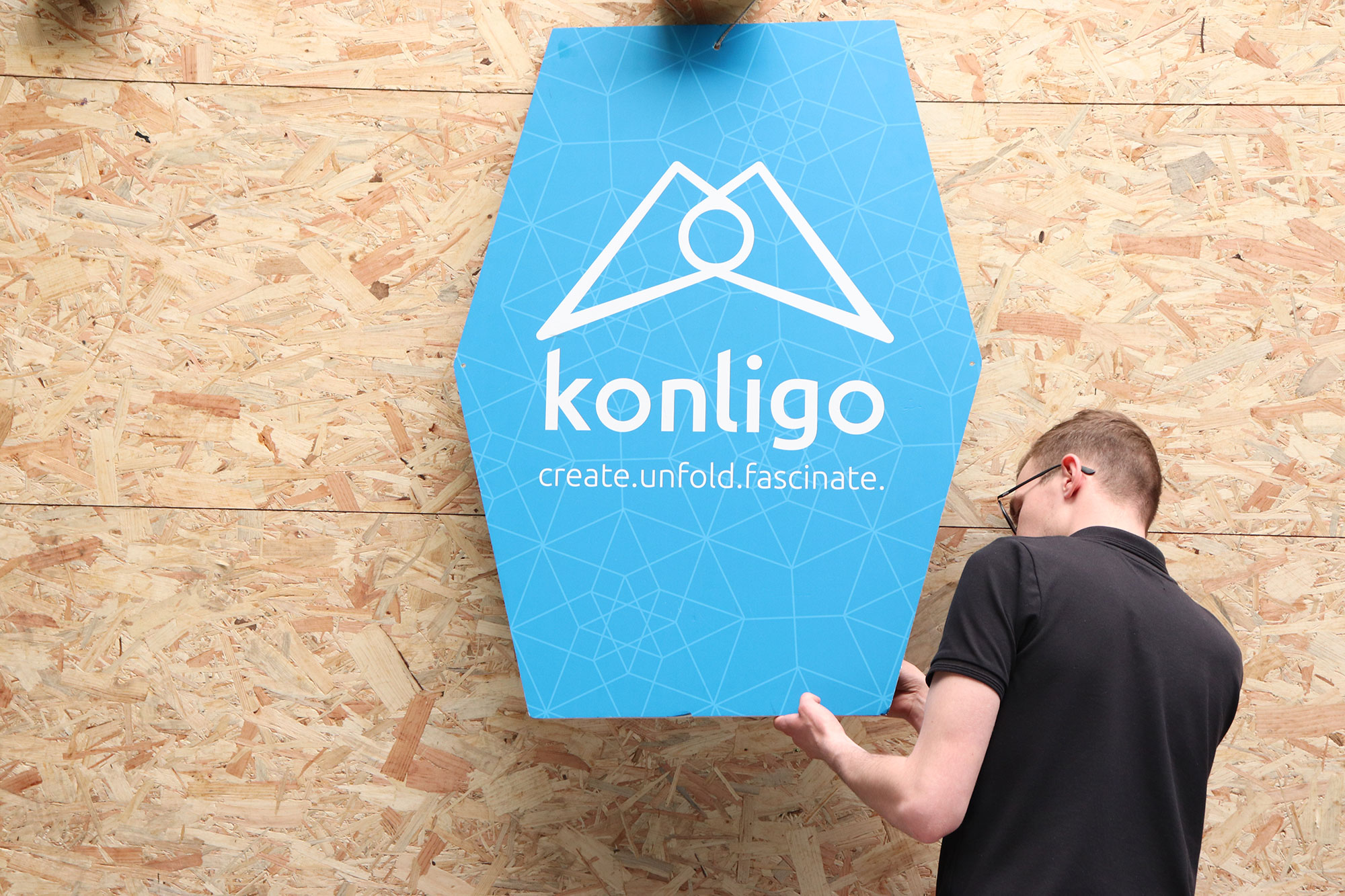Konlingo or Kolingo?
We are almost suffering from an identity crisis: Is our company called Konlingo, or is it Kolingo? We always said Konligo, but could it be that we have been saying and writing it wrong all these years? Where did it all go wrong?

It’s Konligo!
To assure ourselves of the truth once and for all, we took a look at the Belgian State Gazette. Turns out that it really is the BV KONLIGO that was founded on April 25, 2018, for the construction of metal structures and the rental and sale of tents. But why do we still regularly receive letters and invoices addressed to Konlingo or Kolingo? We also sometimes discover this mistake in cover letters (not yet a reason for us not to hire you, but it certainly also doesn’t increase your chances). And even in the last Trends, it was written wrong! That means it’s been written down wrong thousands of times. So, it’s not really surprising that we end up having an identity crisis then, is it?
But how come people get it wrong that often? Kolingo and Konlingo are both non-existent words, so autocorrect can’t be to blame. Yet, even people who know that it is Konligo still sometimes pronounce it wrong.
The (possible) Explanation
We think it is because people, consciously or unconsciously, are more familiar with the word Lingo. In English, Lingo refers to a foreign or incomprehensible language (https://www.merriam-webster.com/dictionary/lingo). The origin of this in turn is Latin, in which the word lingua means ‘language’. For many Dutch people, the word will also be linked to the ever-popular television show Lingo in which people have to guess words and grab balls. And also, the word Bingo resembles it as well. But ‘ligo’ as (part of) a word, or letter combination does not or hardly exist in French or Dutch. Yet, that really is our name: KON-LI-GO.
The origin of this name lies in the Esperanto word kunligo. Kun means ‘with’, or ‘together’. For example, in kunlaborar, for ‘working together’. Ligo in itself means ‘linking’. Put together, this forms kunligo, which translates to ‘connection’ or ‘coherence’. We chose this because at Konligo we are always looking for what connects people. But also, because our structures only exist thanks to the (scissor) connection between the different elements.
The spaces that arise under our structures; The events for which they are used as a stage or tent. All of this invites people to come together, engage with each other and connect socially. And that explains exactly our name choice.
Konligo is thus not just a name, but a representation of our identity as a company and as a group of people. We, therefore, hope that from now on our name will not be misspelled, so that we never have to doubt our identity again.
Konligo